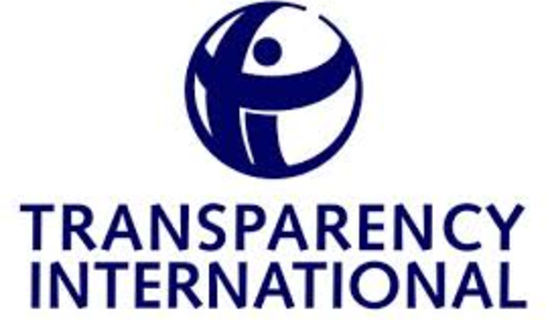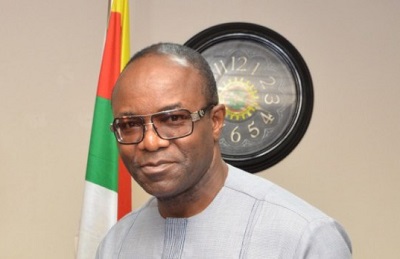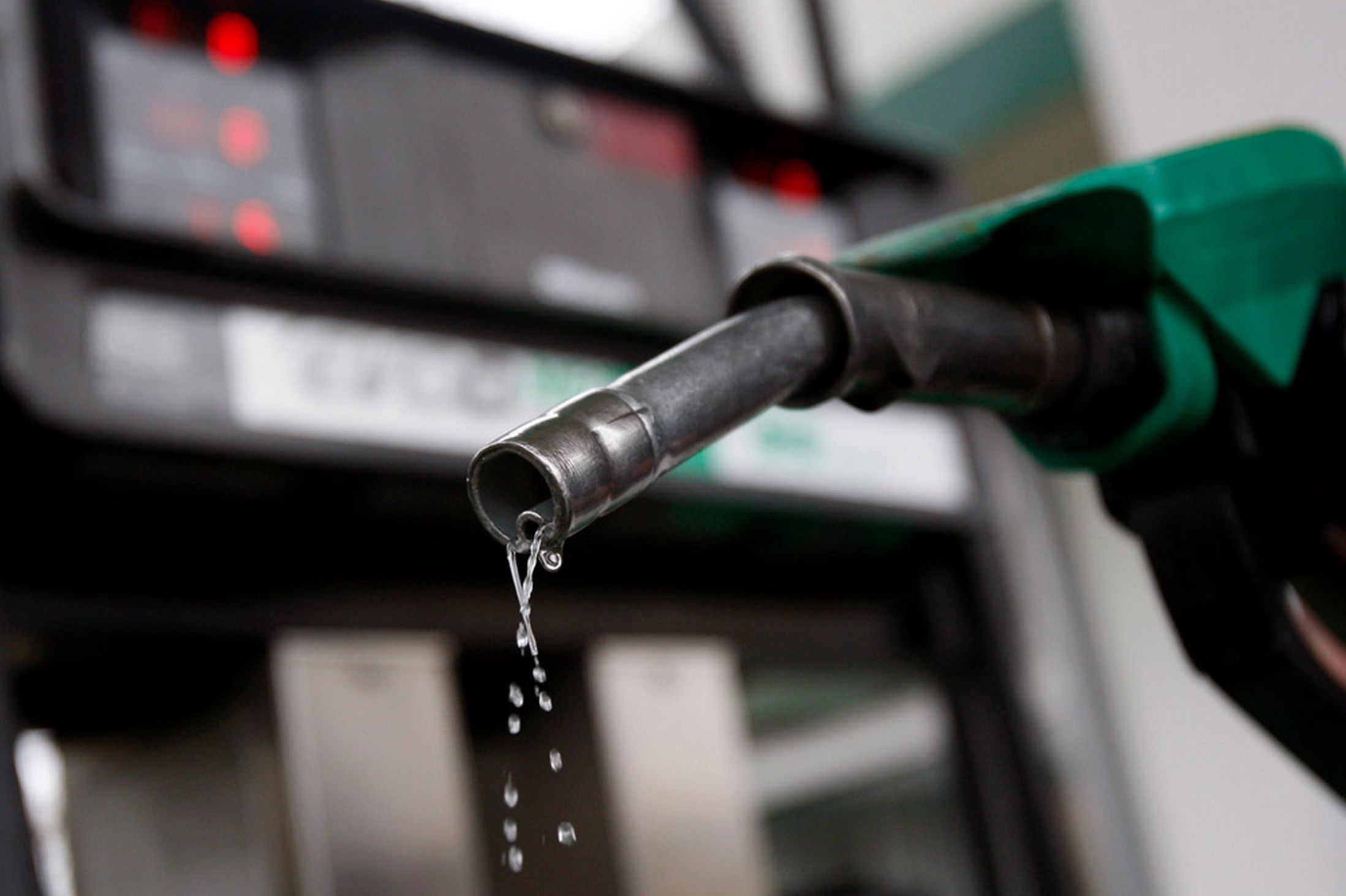This is the concluding part of the interview. Click here for Part One
You see I have observed for a long time the very close correlation between deepening poverty and a weaker naira exchange rate. When the naira exchanged for 50k to one dollar, nobody identified Nigeria as being among the poorest nations in the world. Expatriates wanted to come from abroad to work in Nigeria and earn Naira. The level of brain drain was minimal. Now we train our children with hard earned money from an impoverished country like Nigeria and we spend over a billion dollars yearly to train our children abroad (despite being referred to as a poor nation).
At the end of the day, the countries to which we are paying this outrageous one billion dollars will come knocking on our door tomorrow to say they are intervening in our education downfall by giving us 10million dollars.
Funny enough, they so much celebrate the 10million dollars given to us as charity but they keep mute on the fact that we had earlier paid a whopping 1 billion dollars to them as education levies for our children in Europe, America, Australia and the others.
Worse still, the children on whom we have expended so much of the expensive dollars from the impoverished nation to train now look back and tell you why would I come back to Nigeria if all I will be earning is $500 monthly when I can conveniently earn $3000/$5000 here for a month? Can you see how we are killing ourselves? So you see that brain drain takes away prospective hands that could have helped fix our nation in just a swipe. Not only that, we now have to literally go back on our knees to those countries that have said they don’t want us but they are willing to receive us with our $50,000 fees per child for our children.
We are all aware that the IMF and World Bank possibly have the most intelligent gathering of experts in the world, especially in terms of economic management. Are you telling me that their team of experts is blind to Nigeria’s economic crisis? That they don’t know that what is killing the Naira is the CBN’s substitution of naira for dollar dominated revenue? Am I more of a financial expert than they are? Are you telling me they can’t genuinely help identify some of these problems and train our economic teams from the CBN, Ministry of Finance and other allied agencies/departments where vital fiscal and monetary decisions are taken?
So if truly they want to change our fortunes for the better, they should have pointed out in plane terms to the CBN to stop its suicidal policies on the Naira and give us a more enduring option to explore. But alas! What the IMF recommends despite the plethora of economic challenges that we are already battling is further depreciation of the naira knowing full well the clear and strong correlation between a weaker naira and deepening poverty.
But the FG’s economic policies have always been in conformity with the dictates/ or recommendations of World Bank and IMF…
Of course they are! And that is why I earlier said that the IMF and World Bank cannot be in denial of the true cause of Nigeria’s economic woes. I mean I can’t possibly be richer in data base than both world renowned financial bodies. For example, let’s see if this is sensible enough. As we speak, the CBN has about $30-31billion in its reserves and we are told that the presidency wants a loan approval of 500 million Euros and they tell you frankly not to look in the way of the CBN reserve but to start making immediate borrowing plans from that same bank the CBN is also keeping it reserves. So can you see how much we are being taken for a ride in this country?
You really don’t have to be a student of economics before noticing all this obvious managerial recklessness that they throw in our faces all the time. It’s high time the media started asking questions that will make the policy managers know that we all can’t be fooled at the same time. The praise singing by the media must stop. We deserve better deal as Nigerians.
As part of efforts to find a long lasting solution to our economic crisis, at a stage a close friend of mine and myself wrote to the IMF stating some of the obvious challenges and seeking ways by which they can intervene to help fix it. After about a month of waiting, we got a response from IMF stating that they don’t have powers to challenge domestic policies but can only offer advisory roles.
The bottom line of it all is it that we need to understand and accept that there is no true intention to see a stronger naira. You don’t even have to have school certificate to know that it does not make any sense to say that you are auctioning rations of dollars continuously in a market that you have suffocated with Naira. That paradigm alone is meant to destroy the naira.
This is because anything you auction in ration in a market that you know that money used to buy the ration is already too much in that same market, not just because somebody said the money is too much but you also admitted so because of the continuous mopping exercise that you embark on from time to time.
A market woman who doesn’t have any academic qualification whatsoever won’t commit such expensive blunder. So it’s not a matter of these people being bereft of ideas or knowledge but a conscious deliberate attempt to make sure the naira will never be stronger. Otherwise, why is no one asking any question that how come the naira never appreciates even when our reserve is doubled?
In whose interest must the Naira die?
It is in the interest of the leaders of the country. The reality that the IMF and World Bank which pretend to love us so much in every way cannot see this simple market mismatch also point to the fact that they are also a major beneficiary. If not IMF itself then it will be people who control it and the world economy at large. They cannot really prove to love us if they can’t tell us the basic truths about how to manage our economy. You cannot claim to be my mentor and be leading me continuously through a dangerous path. There can be no doubt about it. It doesn’t require any form of investigation to know. Some of the benefits they stand to gain by ensuring a total crippling of the naira is; they see the benefit in keeping us as primary exporters of basic commodities and ensure that we enter into trade negotiations and agreements that will make us indefinitely primary producers and suppliers of cheap labour. It also includes we subsidizing their economy with over a $1billon dollars educational levy of students studying in their country.
The reality of it all is that these world financial bodies can’t love us more than we love ourselves. They are doing everything possible to penetrate into us and that involves using people they know and trust well.
The Naira is a tool for oppression. We must not be in denial of the fact that largely in this world and economy; it is all man for himself and God for us all. These anomalies do not require rocket science to figure out. It’s indeed very clear and glaring. But like I’ve stated before, poverty is a tool for oppression. What they do is to deliberately make things uneasy for the common man so that he doesn’t have the luxury of time and resources to ask questions concerning the economy or even go to newspaper stand to see what the headlines are for the day.
And like I earlier said, a market woman on the street won’t do some of the things that these people are doing. So the question of qualifications or exposure is out of it. A market woman I’m sure wouldn’t take decisions contrary to the welfare of herself and that of her people.
What would you ascribe to the cause of the astronomical rise in the value of the Naira (to the US dollar) from N190 to above N500?
The rise is not even the issue now but the fundamental cause which has been exacerbated. This is because the same problem has been there all along but something shook it up this time which is the constriction of dollar supply and consequence of too much naira liquidity and the continued auctioning of rations of naira. It’s that simple. You can see that my arguments and presentations have been so consistent for a very long time. I don’t have to scratch my head because the frame work is clear and it makes sense.
Let me try to describe/explain how reckless this whole thing is. In December 2015, the Buhari government submitted a budget of about 6.1trillion naira to the National Assembly for both for capital and recurrent expenditure for the whole year.
Don’t forget that I earlier told you that a 6.1 trillion naira budget is neither here nor there because even according to government sources, the entire budget is not even up to the sum of what is required to fix electricity. So distracting people that it is the budget that is the issue is first of a deceit but leave that aside. Six trillion naira is what they were going to spend in 2016 that has just gone by for both capital and recurrent expenditure.
The total value of the 6 trillion naira that they say they wanted to spend can be seen as a deliberate cash intervention by the government in order to create a consumer demand and also stimulate the economy. So the media were made to applaud the budget describing it in various terms as the best budget ever. Knowing full well that 6trillion naira in 2016 is the same as 4 trillion naira in 2013, for example, because of exchange rate, devaluation and inflation, the two amounts will buy the same thing.
To now say that the 6 trillion naira will take us out of the woods forgetting that just about 10-15% of it is allocated to capital expenditure is a ruse.
But look at this clanger, at a time the Federal Government was proudly declaring its intention to spend 6 trillion naira (in 2016), the CBN at the same time was announcing its intention to mop excess liquidity amounting to 6trillion naira in 2016 as well. So in other words, the budget had even been mopped up before its arrival. This they said in an open and celebratory way.
So it hurts me that we are intentionally walking into hell. I wrote an article detailing all these things in early 2016 but nobody looked in its direction. Funny enough, you’ll think they’ve learnt their lessons but that is far from the truth. In 2017 also, they upped the budget to 7 trillion naira and the frenzy by the media started again. When in actual fact 7 trillion naira today is 4 trillion naira yesterday. So you have not done anything. Not only that as at March this year, the CBN had already mopped up close to 2 trillion naira. And hopefully before December, they will mop up the entire 7 trillion naira. So where are we?
Meanwhile they make it possible to have a cash reserve requirement of 20% and that cash reserve requirement of 20% is still obviously not enough to mop up the liquidity so they go and still mop up liquidity and pay 15% to banks.
Meanwhile, if you wanted to find the equilibrium level, what you have to do is to say what is the source of excess liquidity? Of course one of the reasons is substitution of naira allocation for dollar revenue. You also say cost of funds is high, and that you know is caused when you increase the quantum of Naira within the system, we have the power still to control it if we don’t want to borrow.
In other words, if we don’t want the banks to sit idly waiting for government to come and borrow from them, if we want them to face the real sector then we have to make sure that government is not borrowing all this excess liquidity from them because they make enough money from just that. They will give you all kinds of reasons they can’t lend to the real sector because even if they lend to them at twenty something percent, they are sure it will fail.
Meanwhile, they are not complaining. If you listen to the results that are being published in the last weeks or so, you will see that they are making profits, all of them.
What is the source of these huge profits by the banks?
Treasury Bills. Last year they made about N600 billion from treasury bills alone. Treasury bill is money that the government substitutes as naira allocation, gives to them, reduces the cash reserve requirement so that they will have more money in their hands and makes it easy or necessary for CBN to borrow back; not necessarily to produce any social infrastructural facilities such as electricity, schools, hospitals, roads, etc. but to store it idle or keep it sterilized so that it does not work for higher inflation.
So when you deliberately reduce the cash reserve requirement, you are opening the door for more government borrowing than help the bank assist the real sector. With this system in place, it means the banks don’t have to go to the real sector to make profit. The banks will be praying to earn more dollars because the more dollars they earn, the more naira liquidity there will be in the market and the more the need for the CBN to mop up at expensive rate. Therefore, they can sit down and do nothing but just channel their resources into two things; buy treasury bills or sell dollars (foreign exchange).
But unfortunately, the citizens are too hungry to understand all these gimmicks. They have enough on their heads to think of. Payment of school fees, house rent, feeding and other daily obligations that they must meet. Many of them don’t even have the luxury of time to go check the newspaper stand for any update. They are simply all caught up in the jostle for survival syndrome to have time to notice any evil anomaly from government or any of its agencies.
The deluge of loans (foreign) and Nigeria Development Bank….
First of all let’s differentiate between private and public sector loans. The public sector loan is probably indefensible both on the domestic and external fronts. Because on the external front, what you want to borrow is foreign exchange be it in dollars or euros. On the domestic front, the CBN is busy mopping up excess liquidity and paying up 15% and sterilizing the funds.
Meanwhile the government is still borrowing money to finance its budget whereas, there are idle funds lying somewhere. So you can see the contradictions involved in both the domestic and external funds. And this makes me wonder why we continually shy away from these facts and rather involve in praise singing for policies that have long crippled our economy.
So you can see from the foregoing that these policies of government are not coincidence, rather it is a deliberate attempt at ensuring that we never develop. During the Obasanjo presidency, the IMF/World Bank suggested that government should liberalise education, whereas in actual fact what they mean is that government should hands off education. And these same people rake in over a $100bn from us yearly as education levies for children studying in their countries.
I’ve put myself up for cross examination for several years for government to say what I’m saying is wrong but till now, I’ve not heard from them nor any of their agencies to counter what have been saying continuously all this while. See, I don’t manufacture any of these figures from my head, I get them from government’s activities.
Economic Recovery Growth Plan …
I’m sure you have heard of Vision 20:2020, Millennium Development Goals, and the several other funny policies of government and you and I can testify that all these really have had no impact on the lives of the ordinary Nigerian on the streets. So this new one might really not be far from all that they have earlier bamboozled us with in the past. And in reality most of these plans of government face the same direction that others had faced. In fact, if you critically check, it’s always as if they just lift ideas from previous ones. So how do you expect any meaningful change from this particular one in terms of impact? Especially when you fully understand that they have not given any meaningful attention to the tripod of economic growth for a successful economy. And by that I mean control of inflation, cost of funds and foreign exchange.
See if inflation rate rises above 2-3% and going to 20%, it means you constrict consumers demand. Because the income you earn is not buying as much as it used to be. If this remains so, the companies producing bread, garri, soap and all other daily needs will also reduce their production rate and that means they will shed some labour and consequently that leads to a rise in the employment market.
Inflation drives consumer demands, consumer demands drive or constrict production (depending on if it’s going up or down), production and investment also drive employment depending on how the case maybe. Employment can never rise when investors cannot borrow at 20 something per cent and do business.
The Microfinance Council for example charge the MSMEs at 6% per month totalling 72% per annum whereas even the big business players are complaining that 24% per annum is rather on the high side for them. So who is fooling who?
Solutions…
So the solution here is not in any of these proposed policies of government. The solution lies in the empowerment of the real sector. It should be given an open space to play. This will be made possible if they have access to funds which are as low as 5-6%.
So, the reality is that so long as the ERGP has not suggested ways of modulating or eliminating excess liquidity in a manner that will not require borrowing at15% or thereabout, then we have still not found the solution.
To be candid with you, in Europe for example, the European Central Bank now charges banks an interest rate for warehousing their funds other than they paying for such services and our people know that but refuse to take a cue.
The CBN act of 2007 recognizes the importance of the economic management tripod and therefore agrees that it must not be tampered with by the executive. So the CBN is in the monotomy of its implementation but rather than use such powers to the benefit of majority of Nigerians, it uses it to destroy the economy through its constant auctioning of the Naira against the dollar and the likes of several unprofessional acts that they indulge in.
Excess powers of the CBN…
First of all, let me state categorically that this finance minister (Kemi Adeosun) is no longer different from the former (Ngozi Okonjo-Iweala). Because both of them really do not know the cause of high interest rates in Nigeria. I recall that in one newspaper interview that I read some couple of months before her tenure expired, Okonjo-Iweala was asked what was responsible for the high interest rate, and she responded that ‘I don’t really know why it is so high, infact I must interrogate the banks to know why…’ this is no lie. Fortunately, when I saw the interview, I lifted it and quoted it in one of my articles, so till tomorrow it is fresh and cannot be denied. And Adeosun too has said something similar in her almost two year as minister of finance. So you can see that the two of them are just seemingly exposed but without basic understanding of how the system works. And it baffles me where they get them all from.
However, from my explanation, you can see that interest rates are not just high for no just reason, they are high because of excess liquidity driving inflation/cost of funds and cost of funds also leads to increased interest rate. So does it mean that these so called brilliant ministers can’t possibly examine the cause of it and instead blame the CBN? CBN is trying to say because of this excess liquidity, there’s no way I can bring down cost of funds because if I bring down cost of funds, it means more people can borrow and if more people can borrow then it means that more people can spend and the consequence of that is that inflation will grow through the roof.
Because it is shameful that a finance minister does not know the relationship between excess liquidity, inflation and cost of funds, and blaming people for not doing their job and whether the environment is friendly for it or not, they must bring down cost of funds. If they bring down cost of funds in an environment that is already inflation grown, then you are trying to create an earthquake.
And I must tell you that they (the so called ministers) are bold enough to make such disgraceful expressions because they depend on the ignorance of the media. Because it sounds so unbelievable that a minister of finance does not know the reason for the high interest rate in the country.
I’m really terrified that all these disconnected economic policies have gone unchallenged by the media. And if it’s not checked, the rate of poverty will continue to soar high and even the media practitioners that have continued to look the other way or take pleasure in sitting on the fence will suffer the consequence of the high inflation rates when the time comes.
So, economic recession is not near its end…
Not at all. With all these disconnected economic policies, we’ll only be deceiving ourselves to say recession is near its end.
![EXCLUSIVE INTERVIEW: [Video]The trouble with Nigeria’s economy [Part II], by Henry Boyo](https://thenewsguru.ng/wp-content/uploads/2017/05/Henry-Boyo.jpg)





